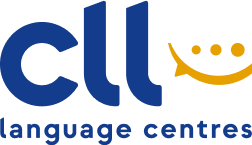Learning a foreign language
Easy English
Want to become fluent or bilingual in English?
Want to become fluent or bilingual in English? Learning English is very simple, as long as you use certain methods that won’t waste your time unnecessarily. Here’s a complete guide to our tips for learning English the easy way.
How easy is it to learn English?
Learning or progressing in English is not very difficult. Anyone can do it, if they pay attention to a few important tips that will prevent you from wasting energy on methods that aren’t very effective.
To become fluent or bilingual, you need to master the rules of grammar and have a large enough vocabulary to be able to understand and express yourself with sufficient ease.
But daring to speak out is another matter altogether. Therein lies the secret to improving your language skills.
Don’t confuse learning easily with learning quickly.
Learning English is easy. Anyone can do it, whatever their age!
It’s easy, but it takes effort, consistency and patience. English is easy to learn, but it takes time. Unfortunately, there are no miracle methods that will enable you to become bilingual overnight.
This requires you to learn little by little, following the progression of English levels that will develop your skills step by step.
In addition to grammatical rules, it’s essential to dare to speak as quickly as possible! This is essential if you are to put into practice all the basic grammar you’ll be learning as you go along.

Review and learn English with tools
There are many tools available online to review your grammar and practice: Moocs, phone apps, websites packed with vocabulary, grammar, etc…
There are grammar courses on all important grammatical subjects:
- Forms of present, past, future
- distinguish for, since, ago, during, …
- subordinate clauses in that and what.
- conditional, tense, oppositional and other subordinate clauses.
- Understanding the purpose of modals
- affirmative, negative and interrogative statements
- few, little, a lot of, many, much and other quantifiers
- express the comparison
- personal, possessive, reciprocal and reflexive pronouns
- etc…
These resources are useful for revising and practising as much English as possible, but they’re not enough for speaking and practising orally.
There are also exam preparation platforms that can be great tools for daily practice.
Exposure to English in everyday life
In addition to the courses and tools you select, it’s very important to expose yourself to as much English as possible in everyday life. Here are a few simple tips:
- Reading a novel in English
- Watch your series and films in their original version with subtitles
- Subscribe to podcasts, English-language YouTube channels, newsletters, etc. on subjects you’re passionate about.
- Talk to native speakers.
- Read everything you can in English: magazines, websites, press and literature.

Learn English easily with a teacher
Learning English is like learning a sport! Your language teacher is like your sports coach. He will guide you through your learning process, helping you to choose the right method according to your objectives and the use you wish to make of English. When the going gets tough, he’s there to motivate you and give you a helping hand.
English courses
English courses adapted to your level are essential, in addition to the various tools and methods you can use. Online or face-to-face courses allow you to practice the language. Whether in a group or in individual lessons, you’ll be able to speak English and discover how easy it is to enjoy speaking English fluently.

Want to learn or improve your foreign language skills?
CLL is Belgium’s largest language school. Tens of thousands of adults, children and teenagers have been trained using CLL’s unique methods.
The CLL teaching team offers tailor-made support for each student, enabling them to dare to speak the language of their choice.
Over 17 languages are taught by a team of experienced teachers.


